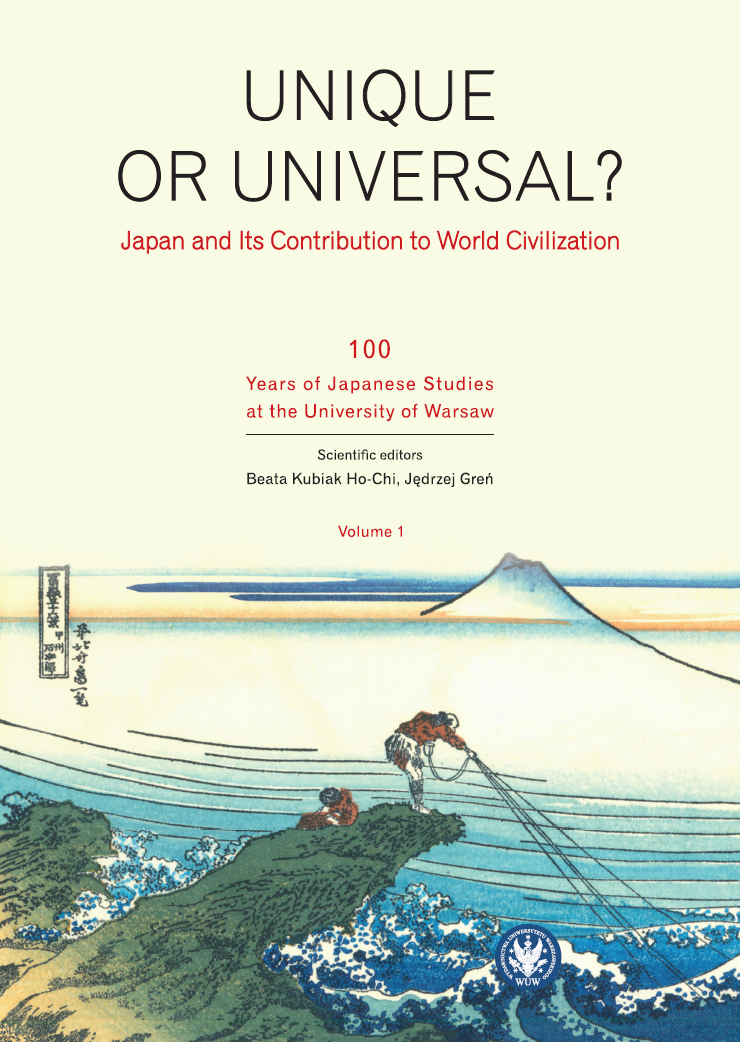‘Binal-Relationship’ and ‘Mono no Aware’ in Mori Arimasa
‘Binal-Relationship’ and ‘Mono no Aware’ in Mori Arimasa
Author(s): Wakui Yōko
Subject(s): Studies of Literature, Other Language Literature, Philology
Published by: Wydawnictwa Uniwersytetu Warszawskiego
Keywords: binal-relationship; mono no aware; Mori Arimasa
Summary/Abstract: Mori Arimasa (1911–1976) was a Japanese philosopher who has not been discussed much in Japan in recent times. However, he seems to hold a unique and important position among modern Japanese intellectuals. He intended to go to Paris for one year in 1950 to complete his study of Pascal and Descartes, but he was so greatly impacted upon experiencing the real Europe that he decided to extend his stay. After leaving his family in Japan, he ended up continuing his in-depth studies of the European civilization until his death in 1976. In his last years, he focused on a unique feature of the Japanese people – their so-called ‘binal-relationship’ to other humans and nature, a concept which he developed through comparing the structure of French and Japanese languages. Moreover, he suggested that the category of ‘mono no aware’, as defined by Motoori Norinaga, was a feeling of isolation resulting from the loss of one of the sides in the ‘binal-relationship’. Thus, the only way the Japanese can keep themselves stable is by being in an intimate ‘binal-relationship’. Among many books and treatises written on the subject of ‘mono no aware’, it seems that Mori’s work is the only one to look at its essence through a philosophical approach. It is believed that the ‘binal-relationship’ is the very keyword for non-Japanese people to consider and understand not only the way of thinking of the Japanese, but also their society and language. In addition, the ‘binal-relationship’ concept offers a way to elucidate some aspects of European culture.
Book: Unique or universal. Japan and its Contribution to World Civilization. Volume 1
- Page Range: 115-132
- Page Count: 18
- Publication Year: 2023
- Language: English
- Content File-PDF

